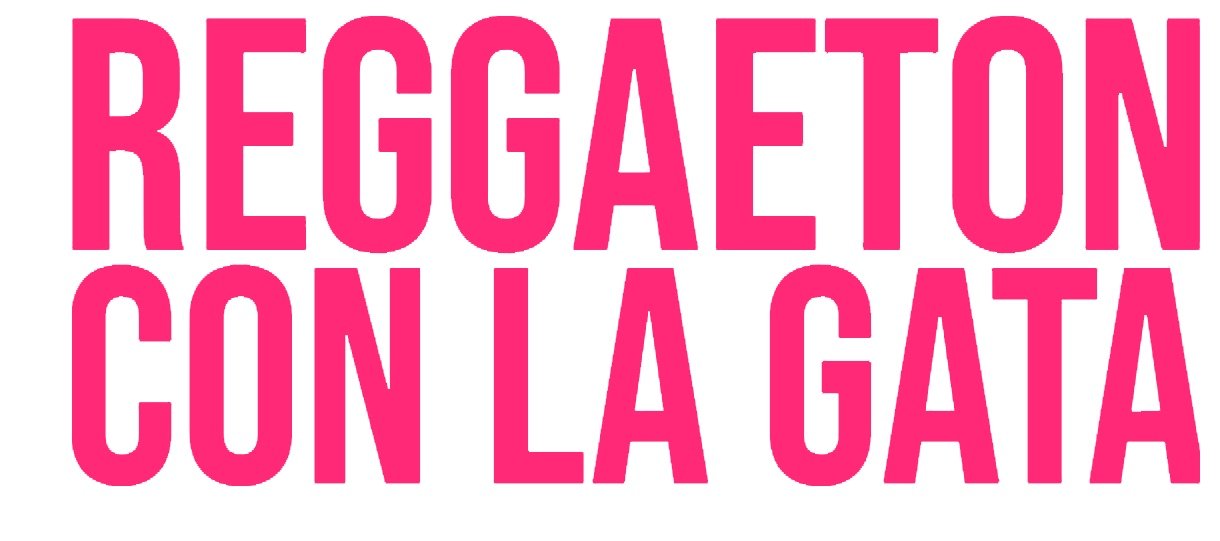Romantic Style De Lo Nuevo: Sech Presents Debut Album 42
A collaborative review of Sech’s album ‘42’ by Katelina ‘Gata’ Eccleston and Verónica Dávila Ellis
Transforming the minimalist reggaetón beats that had been characteristic of his previous productions, in 42, Sech and his producers Cerebro, Dimelo Flow, and Jhon El Divertido whimsically incorporate 80’s style synth melodies and sound effects in a delicate and playful manner. Contrasting with the currently popularized Tainy-produced cutting edge reggaetón tunes that offer foreboding and menacing soundscapes, 42 is instead incredibly dancey and upbeat in the gentlest of ways, making room for a range of emotive lyricism that transport the listener from the long-needed sweaty dance floor (“Pata Bajo”) all the way to the shattered remains of broken hearts (Dime si te acuerdas, Que somos?) and revenge fantasy ballads (Mi ex). Produced during the Covid-19 pandemic, each of the tracks function as reminiscent immersions into a variety of sonic influences, moving through time and space to connect the listener not only to key moments in Sech’s personal life but to perreo’s own defining locales and more.
As such, the subtle electronic dance melodies in “911” –which will remind the seasoned reggaetón listener of classic DJ Blass productions--, the club setting that “Sal y perrea” sketches, the simplistic but deep dembow of “Duvibes”, and certainly the driving emphatic clap beat of “Pata Bajo” propose melodic choreographies that connect the present reggaetón moment with its past lived, dance, and perspired experiences. But the album also expands these well-known references, showcasing Sech’s comfort with experimentation. One remarkable example is the mariachi inspired track, “Feliz de mentira,” a fun spin on standard feel-good guitar based pop melodies, which includes not only carefully placed trumpet codas at the end of each bar, but also beautiful choral irruptions both as backups to Sech’s already delicate vocal delivery as well as a heartfelt mariachi leitmotiv; “Si lo suyo se acaba yo soy el primero en la fila” expressing a polyphony of masculine voices. Notably, in 42’s journey, the adventure always centers around a desired other, distancing this production from the traditional boastful reggaetón and trap and anchoring itself in the purely joyful and pleasurable moments -past and present. This ever present pursuit of a loved one or for the perfect party de marquesina allows Sech to insert his album in reggaetón’s imaginaries, including festive post-breakup scenarios such as the near-closing track “Sal y Perrea” (Se acabó la relación, no la vida!)
Sech is certainly much more than his ever creative and fresh takes on reggaetón. He is quite literally one of the most robust and mellifluous voices in the genre. His soulful and wide-ranging vocal performance, sweet and arresting, adorns the bass-heavy beats with a longing that reminds us of other Afrodiasporic music traditions. Certainly, Sech’s vocal performance is inspired in r&b, and while not the only reggaetón vocalist with such influence (check out Rauw Alejandro’s feature in “Playa” or their previous collab “Mood” to hear similar but distinct takes on r&b inflected reggaetón singing) his delivery is quite impressive—for any genre at that. While other reggaetón performers (most notably veteran De la Ghetto, and Nicky Jam --also featured in 42) have long been engaging with R&B and Soul derived vocal techniques --a move that highlights the important connections between reggaetón and other Black musical traditions-- Sech’s delivery sounds more veritably authentic. It is his specific vocal strength and malleability, to move from coarse rapped bars to sweet crooned notes-- which allows him to depart from previous reggaetón hit configurations, sustaining powerful tracks without the need of much other collaborations.
Wisin y Yandel, featured in the album’s opening track, state the circumCaribbean journey that Sech proposes in his newest production: “Panamá en conexión con Puerto Rico'' announces Wisin, not just to highlight Sech’s Panamanian and WyY’s Puerto Rican backgrounds but more importantly to stress the long standing connections between both countries, manifest precisely in reggaetón itself. To be sure, [tidbit on reggaetón history connection to Panama]
But if Puerto Rican underground –and later—reggaetón rappers imitated Panamanian reggae en español and dancehall versions, in 42 Sech attempts the opposite: he infuses his AfroPanamanian lyrics with Puerto Rican slang, and invites into his tracks five other Puerto Rican reggaetoneros –Nicky Jam, Arcangel, Rauw Alejandro, and Wisin y Yandel.
(Below) By Katelina ‘Gata’ Eccleston
An ode to negritud, perseverance and beauty, Sech’s 42 is a __ celebration of the height of Panamanian greatness en el movimiento,[crafted for grown and sexy listeners?]and it’s for the grown and sexy. The Panamanian sensation is the first of the current generation to compete with a majority Dominican & Puerto Rican artist market on an international stage since DJ Flex. “42” an homage to Mariano Rivera’s baseball legacy, is the perfect parallel for illustrating the rise to greatness in spite of race, and misunderstandings of individualistic cultures. See, what Sech does extraordinarily well is that he dares to combine an array of emotions via(replace via) through his harmonious range of melodies, magnifying the sentiment/Feeling? behind each word.
The 11 track album beautifully blends a medley of distinct chimes of the isthmus, and to the surprise of many, Puerto Rican euphemisms. Sech presents us with the recurring challenge of his generation, “to perrear o llorar” but in a keen manner that allows us to ascend from romances of the past with actual grace.¿Que Somos? A map drawn out for romantics and ex lovers to find their way to and from each other, with a semblance of dignity. A social commentary on the many ways by which the current generation navigates love and lust. ‘Te acuerdas?’–Because I don’t feel you there and I miss your presence’. Between La Maravilla’s bad boy essence, Rauw and Nicky’s naughty demeanors, 42 encompasses almost every, if not all, facets of romantiqueo.
Though wonderfully executed, Sech’s hit album further raises the questions regarding the usage of Puerto Rican slang by non-boricua artists. It's no secret that the modern day formula of Reggaeton or “musica del movimiento” must incorporate semblances of Puerto Rican and even Dominican DNA in its process. However, failure to incorporate slang respective to each creator’s individual nationalist culture isn’t a dereliction of unifying the culture, instead it is a missed opportunity to show how similar we are through our many differences. A decision to not have been taken lightly we fans understands, as “do as the romans do” is a common practice in a collectivistic culture such as that of Latinos however in times such as these, where education of our differences are rampant it would be nice to see this attitude incorporated into our favorite music as well.

